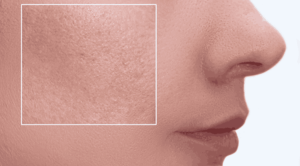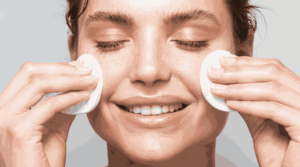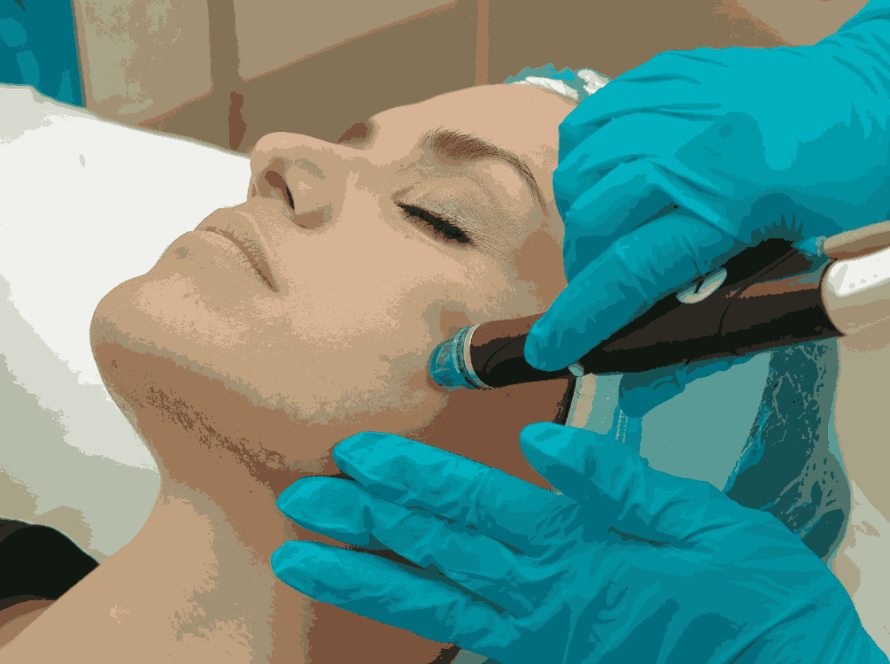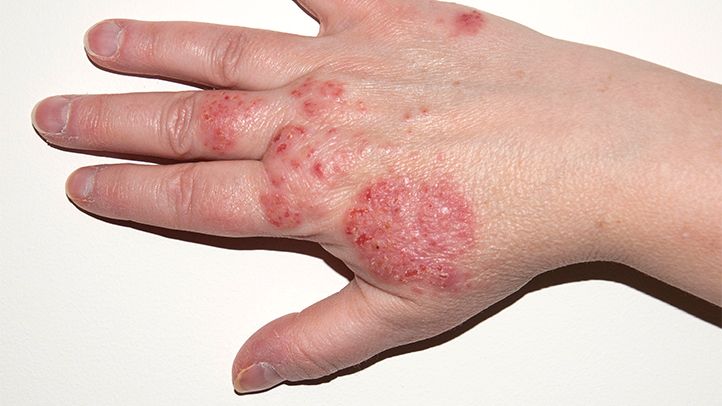
Why Your Skin Barrier Matters and How to Repair It
Your skin may look fine on the surface, but if it feels tight, irritated, flaky, or overly sensitive—it might be sending a warning sign. The culprit? A damaged skin barrier.
At Rx Rejuvenate, we see more and more clients struggling with barrier issues caused by harsh products, pollution, stress, or over-exfoliation. The good news is: with the right knowledge and care, your skin barrier can be repaired—often more easily than you think.
Let’s dive into what your skin barrier is, why it’s essential for healthy skin, and how to protect and restore it.

What is the Skin Barrier?
Your skin barrier (also called the moisture barrier) is the outermost layer of your skin, known as the stratum corneum. It’s made up of skin cells held together by lipids (fats)—like a brick wall, where cells are bricks and lipids are the mortar.
This barrier plays a crucial role in:
-
Retaining moisture in your skin
-
Blocking irritants, bacteria, and pollutants
-
Protecting against UV rays, allergens, and toxins
When your barrier is strong, your skin looks smooth, hydrated, and glowing. When it’s compromised, it becomes dry, sensitive, and prone to redness, acne, or infections.
Signs Your Skin Barrier is Damaged
-
Persistent dryness or flakiness
-
Stinging or burning after applying products
-
Redness or inflammation
-
Increased sensitivity to skincare
-
Sudden breakouts or irritation
-
Tight, uncomfortable skin even after moisturizing
What Damages the Skin Barrier?
Many common habits and environmental factors can weaken your barrier:
-
Over-exfoliating (chemical or physical)
-
Using harsh cleansers or astringents
-
Exposure to pollution or extreme weather
-
Overuse of active ingredients like retinol or acids
-
Skipping moisturizer, especially in dry climates
-
Lack of sleep, hydration, or nutrition
How to Repair Your Skin Barrier
1. Simplify Your Routine
Go back to basics. Avoid using multiple actives (like AHAs, BHAs, retinol, and Vitamin C) at once. Give your skin a break and focus on gentle, nourishing products.
2. Use Barrier-Strengthening Ingredients
Look for these in your moisturizers and serums:
-
Ceramides
-
Niacinamide
-
Squalane
-
Panthenol (Vitamin B5)
-
Hyaluronic acid
-
Fatty acids and cholesterol
These ingredients help rebuild the “mortar” that keeps your skin barrier intact.
3. Avoid Harsh Cleansers
Switch to gentle, non-stripping cleansers. Foaming face washes with sulfates can dehydrate and weaken the skin.
4. Moisturize Consistently
Apply moisturizer twice a day, ideally on slightly damp skin to lock in hydration. In winter, switch to a richer cream.
5. Protect with Sunscreen
UV damage is a major cause of barrier breakdown. Wear a broad-spectrum SPF 30+ every day, even indoors.
6. Stay Hydrated and Eat Skin-Friendly Foods
Drink enough water and eat foods rich in omega-3 fatty acids, antioxidants, and zinc to support skin health from within.

What is the Skin Barrier?
Your skin barrier (also called the moisture barrier) is the outermost layer of your skin, known as the stratum corneum. It’s made up of skin cells held together by lipids (fats)—like a brick wall, where cells are bricks and lipids are the mortar.
This barrier plays a crucial role in:
-
Retaining moisture in your skin
-
Blocking irritants, bacteria, and pollutants
-
Protecting against UV rays, allergens, and toxins
When your barrier is strong, your skin looks smooth, hydrated, and glowing. When it’s compromised, it becomes dry, sensitive, and prone to redness, acne, or infections.
Signs Your Skin Barrier is Damaged
-
Persistent dryness or flakiness
-
Stinging or burning after applying products
-
Redness or inflammation
-
Increased sensitivity to skincare
-
Sudden breakouts or irritation
-
Tight, uncomfortable skin even after moisturizing
What Damages the Skin Barrier?
Many common habits and environmental factors can weaken your barrier:
-
Over-exfoliating (chemical or physical)
-
Using harsh cleansers or astringents
-
Exposure to pollution or extreme weather
-
Overuse of active ingredients like retinol or acids
-
Skipping moisturizer, especially in dry climates
-
Lack of sleep, hydration, or nutrition
How to Repair Your Skin Barrier
1. Simplify Your Routine
Go back to basics. Avoid using multiple actives (like AHAs, BHAs, retinol, and Vitamin C) at once. Give your skin a break and focus on gentle, nourishing products.
2. Use Barrier-Strengthening Ingredients
Look for these in your moisturizers and serums:
-
Ceramides
-
Niacinamide
-
Squalane
-
Panthenol (Vitamin B5)
-
Hyaluronic acid
-
Fatty acids and cholesterol
These ingredients help rebuild the “mortar” that keeps your skin barrier intact.
3. Avoid Harsh Cleansers
Switch to gentle, non-stripping cleansers. Foaming face washes with sulfates can dehydrate and weaken the skin.
4. Moisturize Consistently
Apply moisturizer twice a day, ideally on slightly damp skin to lock in hydration. In winter, switch to a richer cream.
5. Protect with Sunscreen
UV damage is a major cause of barrier breakdown. Wear a broad-spectrum SPF 30+ every day, even indoors.
6. Stay Hydrated and Eat Skin-Friendly Foods
Drink enough water and eat foods rich in omega-3 fatty acids, antioxidants, and zinc to support skin health from within.

